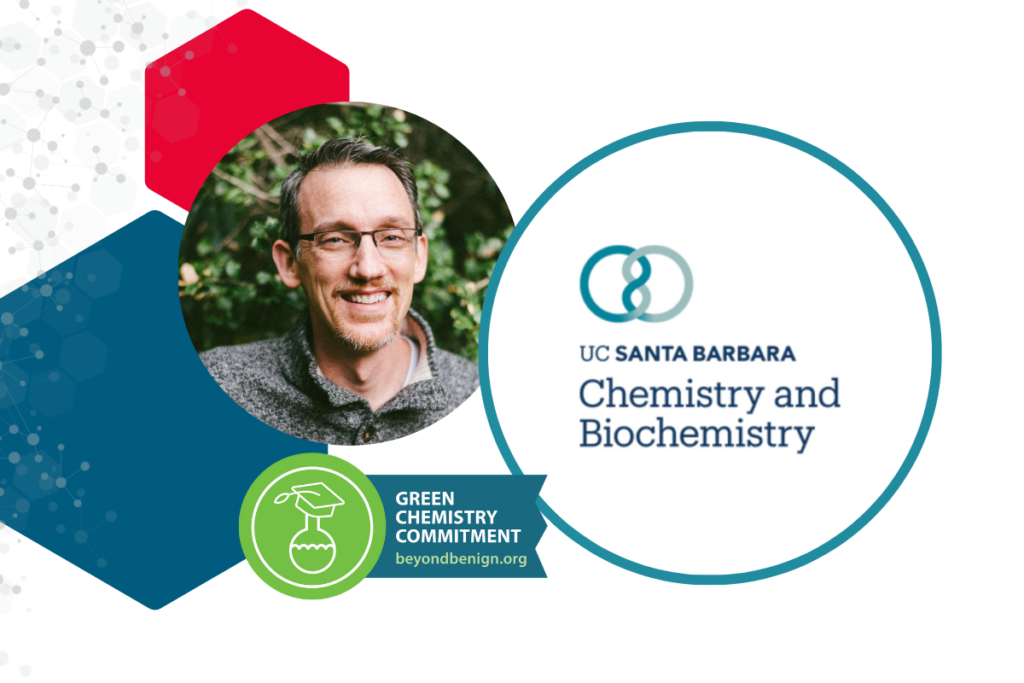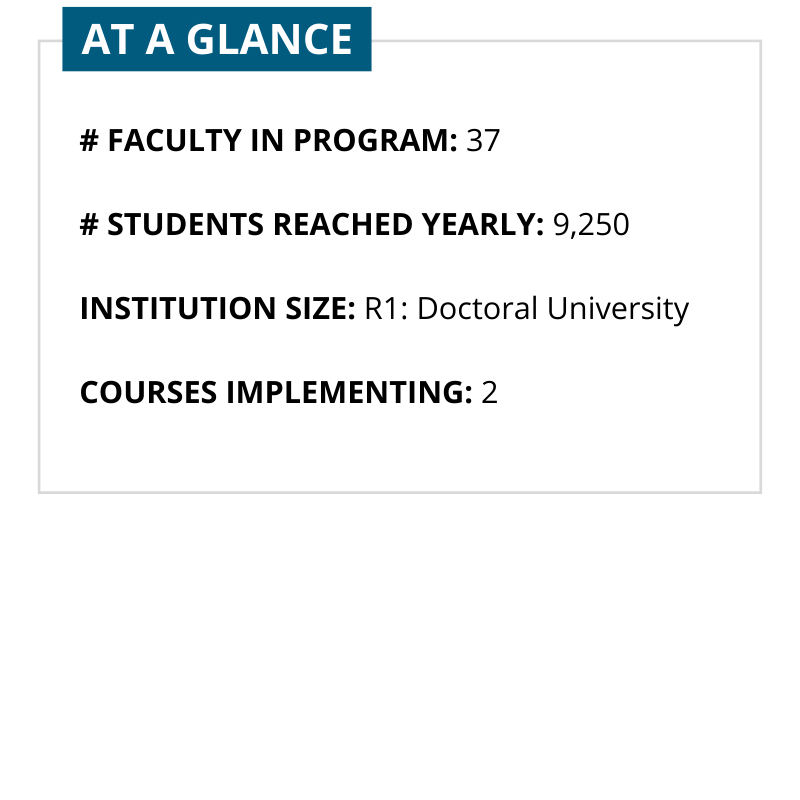An interview with Morgan Gainer


In 2013, Beyond Benign created the Green Chemistry Commitment (GCC) program with guidance from higher education
institutions as a framework to unite the global Green Chemistry community. The GCC goal is to infuse Green Chemistry into Higher Education and give scientists the required skills to design processes and products less hazardous to human health and the environment.
Beyond Benign has partnered with companies including Dow, MilliporeSigma, and Biogen to further its mission to empower educators to transform chemistry education for a sustainable future. Support from these partners has allowed Beyond Benign to create resources, foster relationships, and provide essential funding to educators, all in an effort to grow and strengthen the Green Chemistry education community.
UC Santa Barbara is a Dow academic partner and GCC signer. Discover the university’s story in our interview with Chemistry Lecturer Morgan Gainer.
How has being part of the GCC impacted your institution and you as a faculty member?
I am the director for the undergraduate organic chemistry laboratories at UCSB and have appreciated the many resources that the GCC has available to facilitate the implementation of green chemistry principles and practices. We have implemented green chemistry practices into many of our organic chemistry experiments, allowing us to highlight green chemistry at the same time that students are learning about fundamental organic chemistry reactions and techniques. This implementation has resulted in reduced waste generation, improved performances in the students’ experiments, and a greater understanding for our students of the importance of green chemistry.
What student outcomes have you observed since instituting green chemistry practices and principles?
We have observed that students are gaining a great appreciation for, and understanding of, green chemistry principles. We have been able to incorporate many green principles into our educational labs. As part of this incorporation, we have them evaluate an experiment to determine in what ways the experiment does or does not meet the principles of green chemistry. The students have responded positively to this experience, and it is clear that they understand the value of green chemistry, both for themselves personally and for society as a whole.
How do you envision the GCC community supporting the future green chemistry goals of your institution and training of your students?
We will continue to design and implement educational experiences for our students that incorporate green chemistry principles. I believe the GCC community overall has a passion for both green chemistry and education, and that the GCC can play an important role as educators support one another in their efforts to train up the next generation of chemists and scientists.
